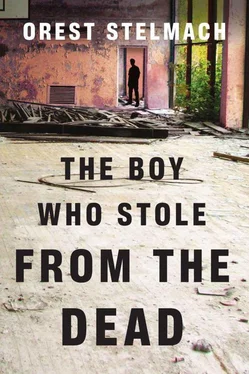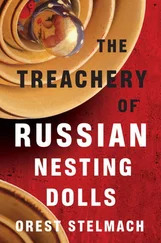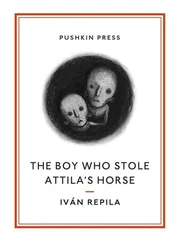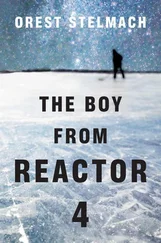Her gut told her to follow the lawyer. At a minimum he knew Victor Bodnar. He was another potential source of information. She knew where Victor lived. Her journalistic instincts told her it would be helpful to know more about the lawyer.
Her taxi followed his Monte Carlo out of New Jersey and into the Lincoln Tunnel. He drove aggressively. When he darted into the left lane, an SUV snuck behind him. It obscured the Monte Carlo.
“You’re going to lose him,” Lauren said.
The taxi driver didn’t respond. He continued rolling along at the same pace in the right lane, speaking Arabic under his breath. He’d been having a phone conversation from the moment she’d gotten in the car.
“Hey.” She tapped his seat back. “Are you listening to me?”
He twisted his neck toward her and gave her the thumbs up. Kept jabbering away the entire time. Meanwhile, the Monte Carlo was nowhere in sight.
Lauren slapped the seat back. “I’m paying to follow that Monte Carlo. If you lose him, you’re not going to get paid. Do you understand English?”
The road twisted. Traffic slowed.
Half the taxi emerged into daylight. Traffic stopped. The Monte Carlo sat idling five cars ahead, three vehicles back from the red light.
“Yes, I speak English,” the driver said, with a refined English accent. “I’m a graduate of the Massachusetts Institute of Technology.”
Lauren slid back in her seat. Her hands left sweaty imprints on the driver’s seat back.
The driver resumed his phone conversation in Arabic. The Monte Carlo turned onto a bridge headed for Rikers Island. Bobby Kungenook was being held at Rikers. The lawyer in the Monte Carlo could be his attorney.
“Don’t go on that bridge,” Lauren said. “Turn around. Turn around. Take me back to Manhattan.”
The fare was up to sixty-three dollars.
Lauren booted her computer and used her USB modem to jump on the Internet. She dug up an old story on the New York Post from the day after Bobby was arrested. His attorney, Johnny Tanner, was quoted as having no comment for the press. Lauren searched for an attorney by that name, and found the law offices of Brian Nagle in Union. She opened the web page for attorney profiles. There was the handsome man with the ponytail.
Now she had two leads.
The boy’s girlfriend and his lawyer.
CHAPTER 39

NADIA RENTED A Skoda Superb in Lviv. No currency arbitrage at the car rental. Costs were denominated in Euros, not hryvnia . The fee was the equivalent of $110 for the day. For $90 more, it came with a driver. But before she could close the deal, Marko pulled her aside.
“Waste of money,” he said. “If there’s one thing I can do, Nancy Drew, it’s drive. You know that.”
“I do know that,” Nadia said. “But driving is not the only objective here.”
“It’s not?”
“No. Driving and not getting us arrested for speeding and then instigating a fight with the cops is.”
She tried to push past him but he held her back. Glanced at the pale, fifty-something man who would be the driver.
“How can we trust this guy?”
“For all the people following us know, we’re taking the train back to Kyiv or somewhere else. Even I didn’t know which car rental place I was going to use until the last minute. They’ll be following us. For sure. And we probably won’t even know it. But the car’s okay. Trust me.”
“The supply is short.”
Nadia glanced out the window. “I see plenty of cars.”
“Not cars. Trust.”
The Skoda reminded Nadia of a Volkswagen Passat but with more legroom. They drove two and a half hours south past fields and farmland. Wheat undulated in the afternoon breeze. Cows grazed. Farmers worked rusty tractors from the Soviet era. Nadia and Marko kept their eyes on the side view mirrors. Traffic thinned as they moved farther away from Lviv. They drove a two-mile stretch without seeing another vehicle. But Nadia was certain someone was back there.
A hundred miles later they arrived in Zarvanytsia. Population three hundred. Clusters of small homes perched on a hill. A village carved out of the forest sat below. Churches, shrines, and monuments comprised the village. A group of fifty tourists surrounded a shrine for the Blessed Virgin. Others wandered in and out of the churches.
The driver dropped them off near the entrance to the pilgrimage complex. Nadia and Marko marched toward the visitor’s center across a stone promenade.
“His mother said he’s staying here?” Marko said.
“Yeah. She said he was meeting a friend.”
“She didn’t give you a name?”
“Nope. She said she doesn’t know the person’s name. Or if it’s a man or a woman. I got the sense she thought it was a woman he was keeping from her.”
“A man keeping his girlfriend a secret from his mother? How old is he?”
“Late fifties, early sixties, my guess.”
“Poor guy.”
“The funny thing is, Karel’s mother said this was typical of him. That he’d always been secretive.”
Marko frowned. “Why is that funny?”
“Because as soon as I met him in the Chornobyl café he started confiding in me. He pulled me right in.”
They walked through the central gates to the main building. A short woman with spiked hair greeted them with a scowl. Nadia asked her if she’d seen Karel today.
“I saw Karel yesterday,” she said. “But not today.” A fresh-faced nun sauntered by. “Sister. Have you seen Karel Mak today?”
The nun walked over to them. “I saw him yesterday at the early morning liturgy.” She greeted Marko and Nadia and asked where they were from.
“New England,” Marko answered.
“Karel likes to spend time in the churches,” the nun said. “I’m on my way to the main church. Why don’t you walk with me? I can orient you.”
They followed the nun across the promenade toward a gleaming white church. Four copper cupolas surrounded one golden one. The church stood elevated above a courtyard that led to the promenade. It looked as much a castle as the churches in Kyiv. Nadia and Marko peeked inside. Nadia looked around for Karel. She didn’t find him.
The nun insisted on showing them the shrine of the Virgin Mary. A black dome with gilded edges contrasted with a white sculpture. Water poured from the walls along the structure’s base.
“The history of the village dates to the thirteenth century,” the nun said. “In 1240 a monk was fleeing the Mongol invasion in Kyiv. He stopped to drink from this spring and pray to the Blessed Virgin. Then he fell asleep from exhaustion and saw the Mother of God. When he woke up he found the miracle-working icon in the village. He stayed and built a chapel. A duke later ordered the icon to be delivered to him. He was very sick. The monk refused. The duke came to the chapel instead. He prayed in front of the icon and was cured. In tribute, he built a church and a monastery here.
“The churches were destroyed and rebuilt through the centuries. When Stalin took over, he burned everything to the ground. He saved one church and turned it into a warehouse. Otherwise it was scorched earth. Ukrainian Catholic services were banned at the risk of death. But the villages hid the icon and spoke the liturgy on Sundays in their homes until 1991 when Ukraine was free again.”
The nun crossed herself. Nadia followed suit though unsure why.
“Praise Jesus,” the nun said. “And may God help you in all your endeavors.”
She pointed out two other churches. One was the Church of the Annunciation and the other was the Holy Trinity. Then she bid them good-bye.
Читать дальше













